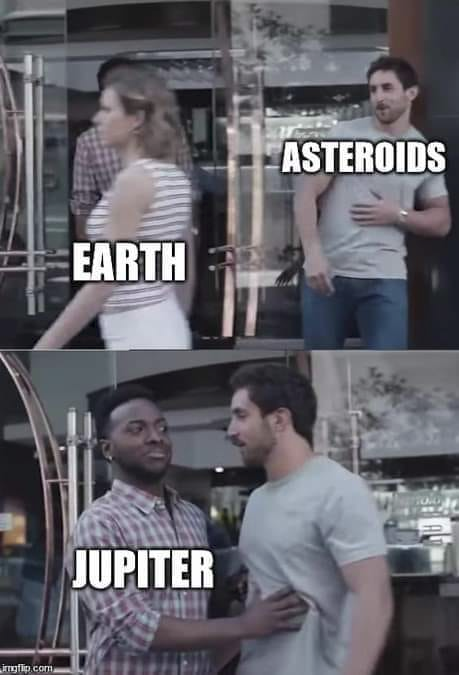this post was submitted on 10 Aug 2024
564 points (99.0% liked)
Science Memes
10988 readers
1952 users here now
Welcome to c/science_memes @ Mander.xyz!
A place for majestic STEMLORD peacocking, as well as memes about the realities of working in a lab.

Rules
- Don't throw mud. Behave like an intellectual and remember the human.
- Keep it rooted (on topic).
- No spam.
- Infographics welcome, get schooled.
This is a science community. We use the Dawkins definition of meme.
Research Committee
Other Mander Communities
Science and Research
Biology and Life Sciences
- [email protected]
- [email protected]
- [email protected]
- [email protected]
- [email protected]
- [email protected]
- [email protected]
- [email protected]
- [email protected]
- [email protected]
- [email protected]
- [email protected]
- [email protected]
- [email protected]
- [email protected]
- [email protected]
- [email protected]
- [email protected]
- [email protected]
- [email protected]
- [email protected]
- [email protected]
- [email protected]
- [email protected]
- !reptiles and [email protected]
Physical Sciences
- [email protected]
- [email protected]
- [email protected]
- [email protected]
- [email protected]
- [email protected]
- [email protected]
- [email protected]
- [email protected]
Humanities and Social Sciences
Practical and Applied Sciences
- !exercise-and [email protected]
- [email protected]
- !self [email protected]
- [email protected]
- [email protected]
- [email protected]
Memes
Miscellaneous
founded 2 years ago
MODERATORS
you are viewing a single comment's thread
view the rest of the comments
view the rest of the comments

Venus was habitable (with vast oceans, plate tectonics, soil and everything) for 3 billion years (almost 70% of its history!), until about 700 million years ago... it stopped being habitable because of Jupiter.
From Wikipedia:
Considering there's a good chance Jupiter obliterated our next door neighbours, an entire planet of organisms... yea it's not as nice as it seems
Oh well. Mars was also habitable for a few hundred million years – in fact, the river beds and remnants of the Martian oceans are still very clearly visible on 2/3 of the surface, even after 4 billion years, and NASA is on a mission to bring fossils of ancient Martian life back to Earth, if there are any. But all of its atmosphere leaked out into space because its dynamo (magnetic field generation) abruptly disappeared so... skill issue lol. One of the many possible contributing factors to that happening is that giant impacts during that period of time overheated its mantle which fucked up global heat flow & convection near the core so... Jupiter's fault again?
Wasn't that because Mars isn't heavy enough?
Well, its small mass certainly contributed to it losing heat more efficiently. But Mercury (much less massive than Mars) and Ganymede (around the same mass as Mars) both have a magnetic field, so there are a lot of other factors at play. Something to do with a change in the chemical composition of Mars' mantle, and the possible lack of plate tectonics, I'm not so familiar with the causes though.